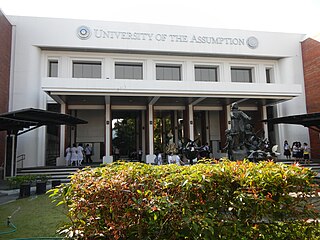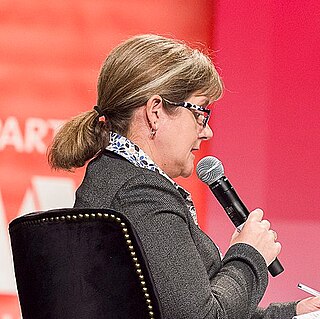Related Research Articles

Food science is the basic science and applied science of food; its scope starts at overlap with agricultural science and nutritional science and leads through the scientific aspects of food safety and food processing, informing the development of food technology.
The Science Council is a UK organisation that was established by Royal Charter in 2003. The principal activity of The Science Council is the promotion of the advancement and dissemination of knowledge of and education in science pure and applied, for the public benefit. The Science Council is the Competent Authority with respect to the European Union directive 2005/36/EC. It is a membership organisation for learned and professional bodies across science and its applications and works with them to represent this sector to government and others. Together, the member organisations represent over 350,000 scientists. The Science Council provides a forum for discussion and exchange of views and works to foster collaboration between member organisations and the wider science, technology, engineering, mathematics and medical communities to enable inter-disciplinary contributions to science policy and the application of science.
A Bachelor of Technology is a bachelor's academic degree that is awarded for an undergraduate program in engineering.

An engineering technologist is a professional trained in certain aspects of development and implementation of a respective area of technology. An education in engineering technology concentrates more on application and less on theory than does an engineering education. Engineering technologists often assist engineers; but after years of experience, they can also become engineers. Like engineers, areas where engineering technologists can work include product design, fabrication, and testing. Engineering technologists sometimes rise to senior management positions in industry or become entrepreneurs.

Science, technology, engineering, and mathematics (STEM) is an umbrella term used to group together the distinct but related technical disciplines of science, technology, engineering, and mathematics. The term is typically used in the context of education policy or curriculum choices in schools. It has implications for workforce development, national security concerns, and immigration policy, with regard to admitting foreign students and tech workers.

The Royal Society Te Apārangi is a not-for-profit body in New Zealand providing funding and policy advice in the fields of sciences and the humanities. These fundings are provided on behalf of the New Zealand Ministry of Business, Innovation and Employment.

The Organization for Women in Science for the Developing World (OWSD) is an international organisation that provides research training, career development and networking opportunities for women scientists throughout the developing world at different stages in their career. It was founded in 1987 and was officially launched in 1993. The organisation was formerly known as the Third World Organization for Women in Science (TWOWS). It is a program unit of UNESCO and based at the offices of The World Academy of Sciences in Trieste, Italy.
Science Week refers to series of science-related events for the general public which are held in a specific countries during a designated week of the year. The aim of such science weeks is to engage and inspire people of all ages with science, engineering and technology.

The University of the Assumption (U.A.) is a private archdiocesan Catholic university in the City of San Fernando, Pampanga, Philippines. The University of the Assumption is the first Catholic archdiocesan university in the Philippines and in Asia. It is among the top schools in the region, based on its accredited programs, and licensure and professional examination results.

The University of Management and Technology (UMT) is a top ranked private research university located in Lahore, Pakistan. It is chartered by the Government of Punjab, Pakistan and is recognized by the Higher Education Commission of Pakistan (HEC) in the W4 category, the highest attainable HEC ranking for Pakistani universities. UMT is known for its generous scholarship program whereby 22% of the total student body study on some sort of scholarship. https://ilm.fund/

Cheryl Elisabeth Praeger is an Australian mathematician. Praeger received BSc (1969) and MSc degrees from the University of Queensland (1974), and a doctorate from the University of Oxford in 1973 under direction of Peter M. Neumann. She has published widely and has advised 27 PhD students. She is currently Emeritus Professor of Mathematics at the University of Western Australia. She is best known for her works in group theory, algebraic graph theory and combinatorial designs.
The Australasian College of Physical Scientists and Engineers in Medicine (ACPSEM) is a professional organisation for medical physicists, biomedical engineers and allied professionals in Australia and New Zealand. The ACPSEM was first incorporated in 1977 as the Australasian College of Physical Scientists in Medicine. The college was formed from the earlier Australian Regional Group of the Hospital Physicists Association (UK), Biophysics Group of the Australian Institute of Physics and New Zealand Medical Physics and Biomedical Engineering Association. The college was admitted to membership of the International Organization for Medical Physics in 1986.

Subra Suresh is an Indian-born American engineer, materials scientist, and academic leader. He is currently Professor at Large at Brown University and Vannevar Bush Professor of Engineering Emeritus at the Massachusetts Institute of Technology (MIT). He was Dean of the School of Engineering at MIT from 2007 to 2010 before being appointed as Director of the National Science Foundation (NSF) by Barack Obama, where he served from 2010 to 2013. He was the president of Carnegie Mellon University (CMU) from 2013 to 2017. Between 2018 and 2022, he was the fourth President of Singapore's Nanyang Technological University (NTU), where he was also the inaugural Distinguished University Professor.
Karen Reynolds is an Australian biomedical engineer. She is currently the Deputy Dean of Computer Science, Engineering and Mathematics at Flinders University and a Matthew Flinders Distinguished Professor. Reynolds is the director of the Medical Device Research Institute and founding director of the Medical Device Partnering Program in South Australia, an organisation that facilitates collaboration between researchers, end-users and industry.

Marguerite Virginia Evans-Galea is the co-founder of Women in STEMM Australia. STEMM. Her research is focused on gene therapy and neurodegenerative diseases.
Muireann Irish is a cognitive neuropsychologist at the Brain and Mind Centre at the University of Sydney. She has won international and national awards, including an Australian Research Council Future Fellowship and L’Oreal-UNESCO For Women in Science Fellowship.

Sue Barrell was chief scientist at the Bureau of Meteorology (BoM). In 2013 she was awarded a Fellow of the Academy of Technology and Engineering (FTSE). In 2018, Barrell was elected Vice President of Science and Technology Australia. Amongst other topics, she has worked on international science policy climate monitoring, research and policy, and ocean–earth observations. Barrell was the first female meteorologist to join the senior Executive team of the BoM. She was the first female elected to leadership of a WMO Technical Commission and was one of the early female forecasters.
Jenna P. Carpenter is the Founding Dean and Professor of Engineering at Campbell University. She was on the faculty at Louisiana Tech University for twenty-six years, where she was most recently the Associate Dean for Undergraduate Studies and Wayne and Juanita Spinks Professor of Mathematics in the College of Engineering and Science. She became the Founding Dean of Engineering and Professor of Engineering at Campbell University in 2015. She researches the importance of diversity in STEM fields, mainly focusing on women, as well as innovative STEM curricula.

Sister Regis Mary Dunne RSM was an Australian scientist and Sister of Mercy, considered to be a pioneer in the field of genetics and bioethics.

James Richard May was an Australian chemical engineer and metallurgist who was the Chief Executive Officer of the Australian Minerals Industry Research Association (AMIRA) between 1968 and 1994. He was also on various academic committees in a number of institutions and organisations.
References
- ↑ "Home page". Science and Technology Australia. 24 October 2023. Retrieved 4 November 2023.
- ↑ "Statistical Society of Australia - Science and Technology Australia". www.statsoc.org.au. Retrieved 4 November 2023.
- ↑ "Treasury Budget Submission" (PDF).
- ↑ Science meets Parliament
- ↑ Superstars of STEM
- ↑ "Science & Technology Australia appoints Dr Melissa Humphries as Committee member". Faculty of Sciences, Engineering and Technology | University of Adelaide. Retrieved 4 November 2023.
- ↑ STEM Ambassadors
- ↑ "Does Australia Really Have a STEM Skills Shortage? | Talent Table". www.talent-table.com. Retrieved 4 November 2023.
- ↑ "Superstars of STEM". Science and Technology Australia. Retrieved 25 May 2024.
- 1 2 3 4 5 6 7 "Meet the Superstars of STEM". Science and Technology Australia. Retrieved 4 November 2023.
- ↑ "Professor Kirsten Benkendorff". Science and Technology Australia. Retrieved 4 November 2023.
- ↑ "Dr Sara Webb". Science and Technology Australia. Retrieved 25 May 2024.
- ↑ "'Up to each of us to make a difference': SA Australian of the Year announced". ABC News. 1 November 2023. Retrieved 4 November 2023.
- ↑ "STA - Mischa Schubert".
- ↑ "Incoming President Professor Mark Hutchinson". Science & Technology Australia. 24 November 2020. Retrieved 27 April 2021..
- ↑ member societies, scienceandtechnologyaustralia.org.au
- ↑ "Science & Technology Australia - A Proud History". CSIRO Staff Association. Retrieved 4 November 2023.